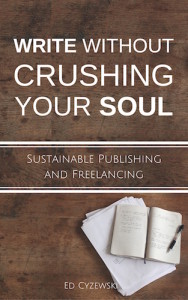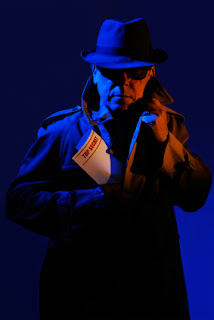new posts in all blogs
Viewing Blog: Rachelle Gardner, Most Recent at Top
Results 1 - 25 of 313

Literary Agent
Statistics for Rachelle Gardner
Number of Readers that added this blog to their MyJacketFlap: 4
 Let’s talk about the opening line of your book. The first thing to know about “first lines” is that they are not going to make or break you. Sure, it’s a lot of fun coming up with great ones. But as long as the first line makes someone want to read the second line, and that line makes you want to read the third… you’re on the right track.
Let’s talk about the opening line of your book. The first thing to know about “first lines” is that they are not going to make or break you. Sure, it’s a lot of fun coming up with great ones. But as long as the first line makes someone want to read the second line, and that line makes you want to read the third… you’re on the right track.
The second thing to know is that the opening line might be the very last thing you write before your book is finished.
That said… don’t you just love a great opening line?
The fun thing about writing a book is that you get to choose what kind of opening line you want, what type of sentence appropriately sets up your book. You can choose to set a stage or create a setting. You can reveal a character. You can drop the reader into the middle of a scene. You can introduce conflict. You can have your character speak a line of dialogue. There’s no one right way to do it.
Today I looked at some of my favorite first lines from novels, and asked myself why I liked them. I found each one appealed to me for a different reason. It might have:
- been clever
- been thought-provoking
- brought an immediate smile (or stab) of recognition
- struck me as poignant
- painted a really cool word picture
- set up an intriguing mystery
- introduced a character I want to know better
- made me laugh
- drawn me into an unfamiliar world
- used words in a beautiful way
The one thing they all have in common is they make me want to read more. They immediately draw me into the universe of the novel by the unique voice that first line begins to establish.
One of the trends lately is to come up with stunningly clever first lines, and there’s nothing wrong with that. But not every novel requires one of those. Some need a more understated approach.
Some say the best first lines introduce conflict right away. I believe that can be true, but it’s not the only way to write a first line. Most of my favorites give a small hint that something is going to go wrong, or something already has gone wrong.
There’s no formula for a first line. It should elicit interest, pique something in the reader, speak to their heart or their intellect or their funny bone. It just has to work. Some of the best opening lines stand remarkably well on their own, having enough meat to allow you to chew on it awhile.
Here are a few popular opening lines from famous novels:
Many years later, as he faced the firing squad, Colonel Aureliano Buendía was to remember that distant afternoon when his father took him to discover ice.
~ Gabriel García Márquez, One Hundred Years of Solitude (my favorite first line ever)
It is a truth universally acknowledged, that a single man in possession of a good fortune, must be in want of a wife.
~ Jane Austen, Pride & Prejudice
If you really want to hear about it, the first thing you’ll probably want to know is where I was born, and what my lousy childhood was like, and how my parents were occupied and all before they had me, and all that David Copperfield kind of crap, but I don’t feel like going into it, if you want to know the truth.
~ J. D. Salinger, The Catcher in the Rye
Once upon a time, there was a woman who discovered she had turned into the wrong person.
~ Anne Tyler, Back When We Were Grownups
The sky above the port was the color of television, tuned to a dead channel.
~ William Gibson, Neuromancer
Mrs. Dalloway said she would buy the flowers herself.
~ Virginia Woolf, Mrs. Dalloway
All this happened, more or less.
~ Kurt Vonnegut, Slaughterhouse-Five
Dr. Weiss, at forty, knew that her life had been ruined by literature.
~ Anita Brookner, The Debut
There was a boy called Eustace Clarence Scrubb, and he almost deserved it.
~ C. S. Lewis, The Voyage of the Dawn Treader
A story has no beginning or end; arbitrarily one chooses that moment of experience from which to look back or from which to look ahead.
~ Graham Greene, The End of the Affair
What is one of your favorite first lines?
Need a writing or publishing coach? Click here for packages.
Image copyright: olegdudko / 123RF Stock Photo
The post That All-Important First Line appeared first on Rachelle Gardner.
 I get emails every day asking for advice on getting published or getting an agent. This is the post for people needing an entry-level introduction to publishing.
I get emails every day asking for advice on getting published or getting an agent. This is the post for people needing an entry-level introduction to publishing.
Dear Writer,
Congratulations on your decision to pursue publication. Before approaching literary agents, you’ll need to create the appropriate materials:
→ If you’re a non-fiction writer, you’ll need a full professional book proposal, with three sample chapters (this must include the FIRST chapter). (See How To Write a Book Proposal)
→ If you’re writing fiction, your manuscript must be complete, edited and polished; you also need a one-sentence hook and a one-paragraph pitch.
→ Do you need to know How to Find a Literary Agent?
→ A great title is an important aspect of attracting an agent’s or editor’s attention. Here’s how to create a perfect title for your book.
Once you have your manuscript and/or proposal ready, you need to prepare a query letter. You then begin sending your query to agents. (See How to Write a Query Letter. You may also want to Google it – there are hundreds of posts online about query letters.) Don’t attach your manuscript or proposal to the query; you’ll send that only if requested.
Please don’t contact literary agents with random questions, requests for advice, or asking for an education on how to get published. Approach literary agents with a query letter once you have a properly prepared manuscript and/or proposal. Don’t phone agents, or write them asking for a phone call.
*Resources To Help You*
An indispensable guide to publishing: Writer’s Market.
Magazines: I suggest subscribing to Writers Digest or The Writer.
Agent Directories:
Guide to Literary Agents by Chuck Sambuchino
Jeff Herman’s Guide To Book Publishers, Editors, & Literary Agents by Jeff Herman
Websites:
These help you find the right agent and even keep track of your queries: Agent Query and Query Tracker.
These help you make sure you’re dealing with reputable people: Writer Beware and Preditors & Editors.
Consider attending a writers’ conference (or two):
This is one of the best ways to get a crash course in writing, publishing, and book marketing. Check out the Shaw Guide to Writers Conferences.
Resources for CHILDREN’S and ILLUSTRATED books:
Adventures in YA & Children’s Publishing
Society of Children’s Book Writers & Illustrators
Resources for Children’s Writers
Children’s Book Insider
The Purple Crayon
Books about children’s publishing
Resources for CHRISTIAN publishing:
Click here for a list of Christian literary agents.
The most comprehensive book for Christian publishing: Christian Writers Market Guide by Jerry Jenkins.
For Christian writers’ conferences, READ THIS.
*Are You Ready to Query?*
Wait! Most agents have a website (and/or blog) on which they list their Submission Guidelines. As you use the resources above to identify agents who might be right for your work, it’s important to read their individual guidelines and submit accordingly.
*Attention Non-fiction Authors*
→ Be aware that author platform and credentials are of primary importance. It may take years to build the kind of platform necessary to interest an agent or publisher. Read all my posts on platform HERE.
→ You also MUST thoroughly examine the comparable books already available on your topic, and be ruthlessly honest with yourself. Does your book say anything that is fresh, unique, and not already well-covered in books within the last five years? If not, go back to the drawing board. Find a fresh hook or angle.
→ Does your topic typically require credentials or degrees to be credible? If so, do you have them? If not, ask yourself what you DO have (besides personal experience) that overcomes your lack of credentials. Are you really funny? Do you have a blog that gets 5,000 hits a day? Have you won awards or major accolades in your subject area? Make sure you have something special to recommend you to a book-buying audience. If you don’t have it, go create it, or give up the idea of traditional publication.
*Attention Fiction Authors*
→ Please do not send the first draft of the first novel you’ve ever written. It’s important to study the craft of writing fiction, as well as getting outside help in editing and polishing your work before calling it ready. You may want to join a writers group or get a critique partner.
*The Final Word*
If you truly want to publish with a traditional publisher, all the resources are available and many of them are free of charge. Good luck!
The post How to Get Published appeared first on Rachelle Gardner.
 Katie asked:
Katie asked:
I was wondering, what if I get an agent and she tries to sell two or three of my novels, all in the same genre, and nothing sells. What would happen in this case?
Well Katie, sounds like you and your agent will be at a crossroads and need to make some decisions.
Each agent is different, and some agents might set you free at this point, believing they’re not the right agent to help you find success. You’ll want to clarify whether your agent wishes to continue or hang it up.
Remember that you have a choice, too. You may want to consider indie publishing. If you want to continue pursuing traditional publishing, and you think another agent can serve you better, it would be a good time for you to make this decision. Be cautious not to automatically blame your agent for the lack of a sale – she’s put in many hours on your behalf and hasn’t gotten paid a thing. She probably deserves the benefit of a conversation, at least.
If you and your agent want to continue working together, you’ll probably have a meeting to discuss your options. You’ll take a hard look at what’s going on, asking questions like:
→ Why aren’t your books capturing the attention of editors? Is it the ideas? The writing?
→ Could there be something specific about your characters and plot lines aren’t resonating?
→How much of this is due to the market, and how much is it the specific books you’re pitching?
→ Is it the genre? If so, is there another genre you’re interested in writing that perhaps is more saleable?
Ideally this meeting would culminate in a strategy and action plan for moving forward to find the success you’ve been working toward.
Keep in mind that this isn’t an uncommon scenario. Once you get an agent, it could still be a long time until serendipity strikes again and you find the perfect match between a project and a publisher.
What would you do if you were the writer in this situation?
TWEETABLE
What’s a writer to do when their agent can’t seem to sell their work? Click to Tweet.
The post When You’re Missing the Mark appeared first on Rachelle Gardner.

By: Rachelle Gardner,
on 2/12/2016
Blog:
Rachelle Gardner
(
Login to Add to MyJacketFlap)
JacketFlap tags:
Publishing,
Add a tag
 In honor of Valentine’s Day coming up this Sunday, I thought I’d wax poetic about what I love in this industry… and in my job.
In honor of Valentine’s Day coming up this Sunday, I thought I’d wax poetic about what I love in this industry… and in my job.
♥ First of all, I love the way writers, editors, and yes, even agents, are a true community. Competition exists, but it doesn’t get in the way of real relationships. That’s what this business is about, relationships, and the people I’ve met in this business are simply the best.
♥ I love working with authors. Your passion impresses me; your bravery amazes me. The commitment authors must maintain in order to be successful is nothing short of monumental, and for that, I salute every one of you. It is my pleasure and privilege to support you in the small ways that I do.
♥ I love the new submissions that I get to see all the time. They show me the incredible diversity of ideas out there. They show me the courage of those who have convictions. They tell me that no matter what anybody says, people will always want to write books, and people will always want to read them.
♥ I love the thrill of the hunt for great books. The anticipation that underlies the reading of every query and proposal. The “aha” feeling when you think you’ve found one.
♥ I love calling writers and offering them representation. It can be the beginning of a wonderful partnership that can enrich both of our lives.
♥ I love the moment when an author realizes they are actually going to have a book published. The offer’s on the table… the contract is signed… their dream is coming true. There is nothing better!
Happy Valentine’s Day
The post Valentine to the Publishing Life appeared first on Rachelle Gardner.
 “Nobody knows anything…… Not one person in the entire motion picture field knows for a certainty what’s going to work. Every time out it’s a guess and, if you’re lucky, an educated one.” ― William Goldman, Adventures in the Screen Trade
“Nobody knows anything…… Not one person in the entire motion picture field knows for a certainty what’s going to work. Every time out it’s a guess and, if you’re lucky, an educated one.” ― William Goldman, Adventures in the Screen Trade
I’ve always liked this quote, because it’s so true—and it applies to publishing, too. We don’t know how a book will do until it goes on sale, or sometimes, until it’s been on sale several months or even years.
Publishing companies and Hollywood studios routinely produce works they predict will sell based on past success of similar works. It’s a flawed method of decision making, but it’s the best we’ve got.
Besides analyzing past experience, what can we do to predict future success of a book or movie? We watch the market; we pay attention to the cultural zeitgeist; we look at what’s going on in the world and think about how that might affect people’s choices in how to spend their leisure time; we look at what people are enjoying in the other arts.
But predicting the future based on the past is an inexact science. Not really a science, even, but an art. Anytime we’re trying to project future success of an individual project, we are making an educated guess, no more.
A corollary to “nobody knows anything” is Billy Wilder’s famous tip: The audience is fickle. Sure, last year they may have gone crazy over vampire novels, but will they still be so enthralled next year? Nobody knows.
It takes just as much effort, time, and money to create a movie or a book that’s going to bomb as one that’s going to do well. This underscores the truth of “nobody knows anything” because if we knew—if we were able to make accurate predictions—then perhaps in the pursuit of the bottom line, only bestsellers would be published and only blockbuster movies would be made.
Instead, we have thousands of non-bestselling books published every year so that there are many, many great choices for those of us who like to read. The fact that nobody knows anything works in your favor if you’re a writer, and even if you’re a reader.
Anytime you ask an industry professional a question that has to do with predicting the future (Will Amish fiction ever go away? Is paranormal going out of style or will it still be hot next year?) just remember that the answer they give you is not gospel, it is simply their informed opinion based on what they see around them. It could be completely accurate… or dead wrong.
Only time will tell.
 Based on what’s happening in books and movies today, what predictions can YOU make about the future?
Based on what’s happening in books and movies today, what predictions can YOU make about the future?
TWEETABLES
Can we predict the future success of a book? Click to Tweet.
Nobody in publishing knows what’s going to work. It’s a guess, every time. Click to Tweet.
Image copyright: sifotography / 123RF Stock Photo
The post Nobody Knows Anything appeared first on Rachelle Gardner.
 Guest Blogger: Ed Cyzewski
Guest Blogger: Ed Cyzewski
New authors routinely hear that they should build their marketing platforms by publishing articles in print magazines. There’s one problem with this advice: it rarely helps authors actually sell books.
There are exceptions to this, and I’ll get to them. But I’ve spoken to publicists and authors, and examined my own book releases, and I’m convinced that print magazine articles rarely convert into book sales or fans who will eventually buy a book. If a platform is supposed to help you sell books, then publishing in print magazines should be a low priority on your “platform building list.”
One award-winning reporter and widely published magazine writer I know noted that she rarely sees growth to her online platform through her magazine or newspaper work. “People just read the articles,” she shared. “They rarely look for the by-line.” One popular print and online magazine columnist shared the same experience with me after her second book failed to hit sales goals.
What should aspiring and experienced authors do to grow their marketing platforms if they aren’t writing for magazines? Are online magazine articles more effective than print magazine articles? And is there any hope for authors with experience writing for magazines?
Invest in what You Can Do
I’m not the best magazine writer around, but I genuinely enjoy blogging and have invested significant time into it. As a result, I’ve been approached by at least five editors from Christian publishing houses based on my blog. These days I aim to write something relatively long, audience-specific, and “evergreen” each week.
While I’ve seen no notable gains in my platform or my book sales from my articles in top print magazines, each blog post provides readers an opportunity to either join my email list (in exchange for two free eBooks) or follow me on social media. Blogging is a slow build, but it is a build that is working toward a viable end.
Authors need not throw themselves into blogging. A personal note each week or every other week through an email newsletter or a niche podcast can prove just as effective. Author Seth Haines has invested a great deal in his Tiny Letters (Tiny Letter is a scaled down version of MailChimp), while bestselling author Tsh Oxenreider reaches her readers through her podcast.
Build an Email List through Short eBooks
Short eBooks are a tried and true way for both commercial and independent authors to build their email lists and to prompt new readers to check out their full-length books. If you swing by NoiseTrade Books, an eBook giveaway site that lets users download eBooks by entering their email addresses and zip codes, you’ll find many bestselling Christian authors sharing books there, including Don Miller and Ally Vesterfelt. I give away several eBooks through NoiseTrade and have more than doubled my email list.
New authors should be especially eager to publish a short eBook in the 10-20,000 word range. It will provide invaluable experience in writing for a specific audience and book marketing before you have a book deal on the line with a publisher that has specific sales goals.
Learn How to Advertise Your Books
If you go the short eBook route, then you may find that publishing a few short or long independent books will help prepare you for a longer-term career with a publisher.
For instance, independent authors and commercial publishers have used price promotions and discounts as ways to spark pre-sales, encourage early reviews, or to revive an older title. Along with these price promotions, there are many services and Twitter accounts that make it easier to share these deals and give them a longer lifespan that could translate into more print sales and a longer period of time on the eBook bestseller lists when your book returns to full price.
Whether you try out Facebook ads, guest posts on high profile blogs, articles for an online news site in your niche, or some other promotion, independently releasing a book or two before querying a publisher will provide some real life book marketing experience so that you have a better idea of what works best for you and your readers.
When I promoted Write without Crushing Your Soul to my email list, I quickly learned that readers were far more receptive to a personal note about the book’s writing process than a simple overview of the book’s content.
Authentically Connect with Readers on Social Media
I entered publishing back when authors were first getting shoved onto Twitter and Facebook. We were told this would help us sell books, and far too many of us found that this wasn’t necessarily always the case.
Rather, social media provides a place for us to authentically connect with our readers, and sometimes the sales will follow if we provide the right kind of book. I’ve found that the authors who connect with readers through hashtag conversations on Twitter or niche groups on Facebook have far more meaningful interactions that are much more likely to result in readers buying a book in the future.
For instance, author Cindy Brandt (now a client of Rachelle’s at Books & Such) created an amazing group called Raising Children Unfundamentalist around her next book project, and the group is already a thriving community. On Twitter, check out the way author Emily Freeman created a conversation around the hashtag #SimplyTuesday.
So… Should Authors Write for Magazines?
While there are many other ways to promote yourself and your work outside of traditional print magazine publishing, that doesn’t mean you shouldn’t consider it. Some authors have built up a loyal following through writing for a particular magazine, especially in a niche market.
Authors with a background in journalism are especially suited for the research, querying, and unique style of writing that magazines require. In addition, a few published articles in relevant magazines can indicate to publishers that you have both the credibility and professionalism to write a book for them.
Most importantly, there’s a big difference between platform building and actively selling books. Many authors gain newsletter subscribers and social media followers through publishing articles for online magazines, but posting an article in an online magazine is not necessarily a sure bet for directly selling books from the article itself. In fact, strategies vary from project to project and from publisher to publisher.
Publicists Remain Divided Over Marketing
Having worked or spoken with several Christian publishers, I’ve found book marketing strategies and tactics vary from one publisher to another. Book marketing is a moving target, and there’s hardly a consensus on the best mix of new and old media marketing.
It’s true that some authors have used timely, shareable magazine or newspaper articles (especially online) to generate book sales. It’s especially helpful that these authors have books that are easy to find in the front of local bookstores or online retail sites!
Print magazine articles can help a few authors sell a few books. They can help most authors demonstrate credibility to an editor. They will not help the majority of authors sell books because far too many magazine readers will enjoy a well-written piece, think “That was nice,” and then go on with the day.
 This is post adapted from Write without Crushing Your Soul: Sustainable Publishing and Freelancing.
This is post adapted from Write without Crushing Your Soul: Sustainable Publishing and Freelancing.
Ed Cyzewski is the author of A Christian Survival Guide, Pray, Write, Grow, and Write without Crushing Your Soul. He blogs about prayer and writing at www.edcyzewski.com.
The post Avoid this Platform-Building Mistake appeared first on Rachelle Gardner.
 If you know me at all, you probably know I have this annoying little habit of getting out for exercise everyday. Either the gym, or outside for a hike or bike ride. I admit I love my exercise. But not for the reasons you might think. I mean, physical health is important and all, but honestly, would that be enough to motivate me? No way.
If you know me at all, you probably know I have this annoying little habit of getting out for exercise everyday. Either the gym, or outside for a hike or bike ride. I admit I love my exercise. But not for the reasons you might think. I mean, physical health is important and all, but honestly, would that be enough to motivate me? No way.
The truth is, I go to the gym for YOU. When I’m at the gym, I have all kinds of insights about the writing life, then I come back and share them on my blog and you might think these things just sort of come to me, but they wouldn’t if I hadn’t been at the gym.
Case in point. I’ve been thinking lately about the fact that there are parts of a writing career that writers don’t enjoy. It’s different for each person, and some of you might be very strange and actually enjoy all of it, but the parts writers typically don’t enjoy include:
→ Writing a synopsis
→ Writing a proposal
→ Writing a query
→ The entire query process
→ Blogging and social networking
→ Being patient for things to happen
→ Any aspect of marketing the book
To be successful in any business, sometimes we need to step outside the comfort zone. It isn’t enough to just write your book; there are other things that need to be done.
I was thinking about this while I was going through a similar thought process about my gym regimen. I needed to shake things up a bit, kick it up a notch. I decided to try some new exercise classes. So I went for it, and here’s what I learned:
→ Lesson 1: If you’re focused on how much you hate something, you’re not going to do it well.
Class: Zumba. Can I just tell you how much I detest Zumba? Possibly as much as some of you hate synopsis or query-writing. I’m not at the gym to shake my booty and swivel my hips, but I tried it anyway. From the first song, I was in torture. Hating every second. Doing the fancy footwork, shimmying my shoulders, all that stuff. I wanted to leave but I promised myself I’d stay at least 30 minutes. It felt like 30 hours.
And you know what? Since I was so focused on my intense dislike of all things Zumba, I was unwilling to try hard. I couldn’t give it my all. I couldn’t break a sweat, my heart rate didn’t even go up. I wasn’t getting a good workout because I wasn’t giving all I had.
For you: Ask yourself: is this something I must do? Or is there another way to accomplish my goal? If the activity is a must (i.e writing a query) then face the dislike head-on and figure out a way to get past it so that you can truly give it your all. If there’s another way to accomplish your goal, by all means, head that direction!
Which is what I did. Next up:
→ Lesson 2: Sometimes, the fact that you know something will help you is enough to motivate you.
Class: Interval Step. An advanced step class where the movement never stops for 55 minutes. I never took step classes because the complicated foot work scares me. At the beginning, it seemed pretty easy to follow. Gradually the steps became more complicated until it became laughable to try and keep up. I persisted and to my amazement, it got my heart rate up and I was really sweating. I was getting a good workout regardless of how goofy I looked, and that was incredibly motivating for me. Now step class is my go-to, and surprise! I love it.
For you: You may not enjoy social networking or writing a proposal, but perhaps if you focus on the end result, the task will become easier. Who knows, you might end up enjoying it.
→ Lesson 3: Sometimes results come slowly. Don’t quit too soon out of impatience.
Class: Bosu Core Training . This is a class of slow & steady movements that are difficult and awkward yet they don’t seem like they’re doing much good. I prefer a quicker pace in my exercise classes, and I prefer not to feel like a dork, so I didn’t really like this one.
. This is a class of slow & steady movements that are difficult and awkward yet they don’t seem like they’re doing much good. I prefer a quicker pace in my exercise classes, and I prefer not to feel like a dork, so I didn’t really like this one.
Until the next day. Wow, muscles I hadn’t talked with in awhile were communicating loud and clear. I finally realized that slow and steady sometimes works, and that I should do this class once in awhile to shake up my routine.
For you: Don’t quit blogging and social networking because you’re not seeing immediate results. Don’t quit querying, don’t quit improving your craft. Give it time.
What parts of the writing career do you find less than enjoyable? How do you deal with them?
Comment below, or by clicking: HERE.

TWEETABLE:
There parts of a writing career that writers don’t enjoy. What to do? Thoughts from @RachelleGardner. (Click to Tweet.)
.
The post Lessons from the Gym appeared first on Rachelle Gardner.
 Got a terrific nonfiction project you’re trying to sell? Wondering if you have what it takes? Here are some signs of potential future success as a nonfiction author:
Got a terrific nonfiction project you’re trying to sell? Wondering if you have what it takes? Here are some signs of potential future success as a nonfiction author:
1. You’ve previously written a book that was at least mildly successful… maybe something like The 7 Habits of Highly Effective People.
2. You have a recognizable name. For instance, Bradley Cooper. Or Oprah.
3. You are currently a top candidate for President of the United States.
4. You have recently won several gold medals in the Olympics. In a sport people care about.
5. You have come up with a life-changing, magical method of organizing people’s stuff. And it involves talking to your stuff.
6. You are the founder of Microsoft.
7. You are the…. what’s that? you don’t like this list?
(Hey, Bill Gates might be reading this blog, you never know.)
Okay fine, here’s a list that might help you a little more.
10 Things Editors Look For in Nonfiction
(The dead serious version.)
1. Established platform (built-in fans and potential bookbuyers).
2. Expertise and/or credentials in the subject area of your book.
3. A new and exciting idea, with a terrific title. (Yes, they do exist.)
4. A fresh take on a familiar idea. (How many parenting books do we need? Make yours uniquely compelling, and it’s possible we’ll need at least one more.)
5. A strong writing voice that compels readers. Yes, the craft of writing counts, even when your message is primary.
6. Felt-need takeaways that matter to the reader. Answer the question: What will I get out of this book? What’s in it for me?
7. A sellable concept – something people can’t already get for free elsewhere. This can be a tough one considering everything that’s on the Internet.
8. An author’s availability and commitment to playing a strong role in the marketing process.
9. A concept that could birth logical, sellable ancillary products, should the book take off. (Study guides, DVDs, specialized editions, etc.)
10. An author who is already famous (at least in his/her niche or subculture), or knows the right famous people who will offer endorsements or write the foreword.
How many can you check off your list?
The post 10 Things Editors Look for in Nonfiction appeared first on Rachelle Gardner.
 “To my knowledge, nothing like this has ever been written. Ever. It is utterly fresh, mine and complete.”
“To my knowledge, nothing like this has ever been written. Ever. It is utterly fresh, mine and complete.”
That was a line in a query I received.
It’s hard to explain how this sounds to agents and editors who get pitched everything under the sun, are typically well-read, and are aware of what’s going on in the publishing marketplace. The book might be unique but not to the extent the writer seems to think.
When pitching your work, you have to walk a fine line: Be confident, but don’t come off as grandiose. Stress your original and fresh voice, yet don’t be afraid to acknowledge there have been other books similar to yours, whether in plot, style, theme, whatever. Yes, you want to be unique, but you can’t make wild claims that just aren’t true. Every book published has some similarities to something that came before; yet yours must also have something fresh and different about it.
In non-fiction book proposals, we always have to provide comparable titles (the “Competition” section) and increasingly, editors are asking us for comps even for fiction. Many authors write something like, “There are no books similar to mine.” What it says is, “I haven’t taken the time to properly research the market and I have no idea what other books could be compared to mine.”
Remember, it’s not bad to be able to compare your book to others people have heard of. It’s good. It helps people begin to capture a vision for the type of book you’ve written. If you can point out the ways your book is similar and different, and why you think yours is a good complement to the other, you can further help a publisher understand what your book is all about. Don’t ever claim “There are no books like mine.” If that’s your impression, go back to the bookstore and find some.
You don’t have to give comp titles in your query, but when you get further down the road, you may be asked what books you think yours is similar to, so it’s a good idea to be ready.
Of course, if the book in question really was amazingly fresh and original, my response to the query would not be quite so negative. Alas, it was not the case. Most of the time when people try so hard to tell me their book is awesome, rather than just showing me an awesome idea and letting me figure it out for myself… it’s usually not awesome.
Unsurprisingly, the same writer who told me their book was utterly fresh responded to my pass letter with the observation: “This is probably one of the most spectacular works of fiction ever written.”
My loss then, I guess. Bummer.
Do you have a hard time finding books to compare with yours?
The post Utterly Original: A Rant appeared first on Rachelle Gardner.
 Okay, so you notice there’s no shortage of advice out there about how to make the most of a conference. But what about those of us who are introverts? It can be even more difficult for us to navigate these social situations. Oh, how we envy our extrovert friends! Are there any special tips for people like us?
Okay, so you notice there’s no shortage of advice out there about how to make the most of a conference. But what about those of us who are introverts? It can be even more difficult for us to navigate these social situations. Oh, how we envy our extrovert friends! Are there any special tips for people like us?
Well, yes, there are. Here are a few ideas to consider:
1. Change your mindset from “me” to “them.” You’re at the conference to learn and to network, but paradoxically, the best way to do that is to focus on the needs of others. Set your own discomfort aside, and look for others who may also be uncomfortable, and see how you can make things easier for them. Even if you’re talking with an agent or editor, focus on them instead of yourself. Ask questions about their experience. See if there’s anything they need. This is one of the best ways for an introvert to get out of their shell.
2. Research before the conference. If there are authors, editors, or agents you’re interested in talking with, Google them ahead of time to get some ideas for possible topics of conversation. They won’t seem like total strangers, and you won’t feel like an idiot in trying to have a conversation.
3. Reach out before the conference. There may be some people to whom you can send a quick email or Facebook message, inviting them to coffee, asking if they’d like to sit with you at a meal, or otherwise planning ahead for some of your social interactions. This is especially important if you’ve had online communication with people but don’t know them offline. You’ll feel more comfortable if you have some planned meetings with others.
4. Have some questions or opening lines ready. Think through the range of people you will likely meet, and write down a number of conversation openers that will help you overcome any awkwardness when meeting someone. Try to avoid yes/no questions, and make sure you listen carefully to the answers, which will give you clues for continuing the conversation. Some possible conversation-starters:
- What’s your favorite part of the conference so far? (Or, what are you most looking forward to at the conference?)
- What brings you to this conference?
- What do you find most valuable about these conferences?
- What did you think of today’s keynote speaker?
- Can you tell me a little about your work?
5. Also, have some answers of your own ready. Plan some concise and fascinating answers to questions like, “So, what do you write?” and “Tell me about yourself.” You don’t want to be tongue-tied at those moments!
6. Prepare your book pitch. Make sure you’ve organized your thoughts about the book(s) you’re pitching, so you can easily give a 1 or 2 minute spiel when asked.
7. Approach it with a friend. Make sure you and your friend encourage each other to talk to new people. Be each other’s wingman and moral support—DON’T use each other as a crutch and don’t just talk to each other. You each may know different people, so plan to introduce your friend to people you know, and she can do the same for you. You can also highlight each other’s accomplishments in a conversation.
8. Be a part of the conference. Volunteer to help! A great way to overcome introvert tendencies is to put yourself in a place where people are coming to you for help or answers to questions. When you’re volunteering, be as friendly and outgoing as you can, allowing for serendipitous connections.
9. Rejuvenate yourself as needed. If, as an introvert, you need solitude to get re-energized, plan time for this. Whether it’s quiet time in your hotel room, a half-hour in the hotel gym or a walk outside, make self-care a priority in your schedule.
Readers, anything to add? Any questions about conferences?
TWEETABLES
Are you an introvert? Going to a conference? This post is for you! Click to Tweet.
Advance preparation is the key to successfully navigating a conference. Click to Tweet.
[Image copyright: sifotography / 123RF Stock Photo]
The post The Introvert’s Guide to Conferences appeared first on Rachelle Gardner.
I can never understand why so many writers have websites and/or blogs, but do not have their email address or a “contact me” link easily visible.
It’s a frequent source of frustration for me. Why would you bother putting yourself out there without giving people a way to contact you?
There are two circumstances in which I come up against this:
(1) I’m following links to various websites/blogs, find something I like and become interested in talking to the writer about whether they’d ever like to be published, whether they have an agent, etc… and there’s no email address.
(2) I want to respond privately to a comment someone has left on my blog, rather than put it out there for all the world to see. I’m interested in engaging in conversation. Yet when I follow the link to their blog or website, again, no way to contact them.
Listen, there’s a lot of dialogue going on out here on the web, and real connections are being made. If you don’t include a way for people to contact you directly, it says you’re not interested in making connections, that maybe you’re just interested in being heard but not interested in hearing from others.
You’re here to network, to learn, to communicate, and to create relationships. It’s not just about putting your blog or website up and commenting on others’ blogs. Let people know how to reach you, too. Just in case.
And by the way, the excuse that you want to avoid spambots getting your email address is so five years ago. You can encrypt or obscure your email address so that people can see it but spambots can’t. If you want, you can also create a separate Gmail or Yahoo address for public use. It’s free and takes 30 seconds.
So, if you have a website or blog, and if you’re leaving comments on others’ blogs, make sure you have your email address or “contact me” plainly visible.
If you’re one of those without contact info on your site—why not? Are you going to add it today?
Have a blog or website? Make sure people can find your email address or contact page!
Click to Tweet this.
The post And to Whom Should I Reply? appeared first on Rachelle Gardner.
 I’ve been coaching several of my clients through the process of coming up with a good title for their book, so I thought I’d share my tips with you.
I’ve been coaching several of my clients through the process of coming up with a good title for their book, so I thought I’d share my tips with you.
Let’s start by acknowledging a few things. The publisher is usually responsible for the final decision on title, and in the query stage, it’s not that important. In fact, some agents have said they don’t pay any attention at all to titles. But at some point, you’re going to want to think seriously about this. Your title is part of the overall impression you’re creating about your book. It can set a tone and create an expectation. Whether you’re pitching to an agent, or your agent is pitching to publishers, I think you want to have the strongest title possible.
Think of it this way: the better your title is, the better your chance that the publisher will decide to use it, rather than changing it.
So here’s what I recommend when you need a title, for either fiction or non-fiction.
First, make sure you know the genre of your book, and identify what kind of feeling or tone you want to convey with the title. Write it down. This is important, as I’ve seen humorous books with dead-serious titles, contemporary books whose titles say “historical romance,” novels that sound like self-help books… you get the picture. Be clear on what your title needs to instantly communicate.
Time to start brainstorming:
→ Find twenty books on Amazon that are in the same genre as yours and whose titles you like. Write down their titles. Try to get a feel for what works with your genre. What do you like about the titles? What don’t you like? Then put the list away for awhile.
→ Sit with a pencil and paper (and maybe your critique group and a white-board) and free-associate, making lists of words related to your book. Put them in columns: nouns, verbs, adjectives. If it’s a novel, list words that describe or suggest the setting. Then think about each of your major characters and write down words that relate to them. Think about the action in the story and write down verbs that capture it. If your book is non-fiction, list words that capture what you want your reader to think, feel or do after reading it. And words that describe what your book is about.
→ Nothing is off limits—write down anything you can think of that conveys anything about your book. Use visual words that suggest a scene. Other words that evoke an emotion. A sensation. A location. A question. You should have at least 100 words.
→ See if any of the words would work as a single-word title. Then start experimenting with different word combinations. Adjective-noun, verb-noun. Keep a thesaurus handy and look up other words. Write down as many word combinations as you can. Try not to self-censor at this stage.
→ From these lists, come up with at least 20 possible titles. Then put them away for 24 hours. Two things will happen: your subconscious may still be working on it; and when you come back to your list, you’ll have fresh eyes.
→ Go back to your title list. Add any new ideas you’ve had. Then narrow it down to three to five possibilities. Run them by a few people. (This may or may not help, depending on if there’s a consensus or the opinions are all over the map.) Take a little more time before narrowing it down to one. If you can, wait another day or two.
→ Remember your list of titles from Amazon? Go back to it. Ask yourself if the title you’ve chosen would fit the list—without being too similar or generic.
A few more questions to ask about your title: Does the tone of the title match the tone of the book? Does it convey the right genre (including time period if applicable)? Would it attract attention? If the book were spine-out on the shelf (so the cover and sub-title were not visible) would it still attract attention? Would a reader have any idea what the book is about just from the title? (Sometimes important for non-fiction.)
Once you’ve made a decision—celebrate!
Q4U: How have you decided on titles for your books? Do you find yourself emotionally attached to the one you’ve been living with since you first thought of the book?
Rachelle Gardner, Literary Agent
The post Create a Compelling Book Title appeared first on Rachelle Gardner.
 You are standing in an elevator and have two minutes to tell someone about your book. Today we’re going to talk about crafting that one-sentence summary, also known as a logline, a hook, or a one-sentence (elevator) pitch. This is not your book’s tagline!
You are standing in an elevator and have two minutes to tell someone about your book. Today we’re going to talk about crafting that one-sentence summary, also known as a logline, a hook, or a one-sentence (elevator) pitch. This is not your book’s tagline!
What: About 25 words that capture your novel, memoir, or non-fiction book.
Why: To get someone interested in reading your book.
When to use it: The start of a query, or anytime someone asks you, “What’s your book about?”
What it does: A one-sentence summary takes your complex book with multiple characters and plotlines and boils it down into a simple statement that can be quickly conveyed and understood, and generates interest in the book.
What it should include:
→ A character or two
→ Their choice, conflict, or goal
→ What’s at stake (may be implied)
→ Action that will get them to the goal
→ Setting (if important)
Tips:
→ Keep it simple. One plotline, 1 or 2 characters.
→ Use the strongest nouns, verbs and adjectives.
→ Make the conflict clear but you don’t have to hint at the solution.
In your one-sentence summary, try not to pitch a theme. Pitch what happens. Examples of themes:
This book explores forgiveness.
This book looks at the thin line between right and wrong.
This book explores the meaning of independence, and asks if it’s really possible.
Here is Nathan Bransford’s simplified formula for a one-sentence pitch: “When [opening conflict] happens to [character(s)], they must [overcome conflict] to [complete their quest].”
Examples of one-sentence summaries:
Harry Potter And The Sorcerer’s Stone by J.K. Rowling
• A boy wizard begins training and must battle for his life with the Dark Lord who murdered his parents. (Thanks Randy Ingermanson for this one.)
→ Character=boy wizard
→ Conflict=battling the Dark Lord
→ Stakes=his life
→ Setting=none
→ Action=http://www.rachellegardner.com/feed/wizard training; avoiding the same fate as his parents
The Help by Kathryn Stockett
• In the south in the 1960s, three women cross racial boundaries to begin a movement that will forever change their town and the way women view one another.
When Faith Awakes by Mike Duran
• Chaos is unleashed on a quiet coastal town when an unassuming crippled woman raises a young boy from the dead, unlocking a centuries-old curse.
Medical Error by Richard Mabry
• Identity theft becomes fatal for a patient and puts a young doctor’s reputation and medical practice in jeopardy.
Chasing Superwoman by Susan DiMickele
• A successful attorney and mother of three battles discrimination, exhaustion, and a clueless boss while balancing a career, a family, and a life of faith.
NOW IT’S YOUR TURN. Leave your one-sentence summary in the comments.
The post Your Elevator Pitch appeared first on Rachelle Gardner.
How many times have you heard the new-writer’s advice: Develop a thick skin.
You’d think this would be even more of a requirement for an agent. It’s good advice for anyone who’s visible on the Internet, frequently giving their opinion on things. So all in all, you probably think I’d be a person with a thick skin.
However, I have a confession:  I don’t have a thick skin.
I don’t have a thick skin.
Not at all. I have a fragile heart, I take things personally, and I don’t just bounce back right away when I receive criticism.
Paradoxically, I truly appreciate helpful critiques of my work,or advice on how to improve any area of my life. I crave it. I value the input of others. Yet at the same time, if it’s not always positive, I have a hard time getting over the hurt feelings (or the knee-jerk angry reaction) and moving on to actually learning from the criticism.
The reason I’m telling you this is because I know people are telling you “develop a thick skin” and I know some of you are thinking, “I don’t know how to do that.” And I’m here to tell you: Some of you will never develop a thick skin.
But the important thing is: You’ll survive.
If I’ve survived all these years in the competitive environment of publishing, and previously, five years in the extremely dog-eat-dog world of network television, you will survive, too. You survive by first, allowing yourself to experience the pain. You find ways to express it in a healthy way, perhaps by taking a day to cry, or talking it over with your best friend, or calling your mom because she’s the one person who always supports you no matter what.
Then, you turn it around. You ask yourself if the criticism came from someone to whom you should listen. If the answer is yes, then you begin looking for ways to learn from what they said. You ask yourself whether you disagree or agree with what they said. (You give yourself permission to disagree with at least part of it.) Then you take what you can learn from, and discard the rest. Move on to the next thing.
Easier said than done, of course. And I admit, it sometimes takes me awhile to work through this process!
So what about you? Are you thick skinned? If not, how do you handle criticism? Are you able to learn from it anyway?
The post Thick Skin: The Key to a Writer’s Survival appeared first on Rachelle Gardner.

By: Rachelle Gardner,
on 7/1/2014
Blog:
Rachelle Gardner
(
Login to Add to MyJacketFlap)
JacketFlap tags:
Publishing,
Add a tag

I’m blogging at Books & Such today. Here’s a snippet:
We spend a lot of time on this blog giving you tips on becoming a successful author. But what if you have a few… shall we say… weaknesses? Can you have a few bad habits and still succeed?
The truth is, we’re all just muddling along. Even the most successful of us have habits or traits we know we shouldn’t. Nobody is doing everything exactly right.
So below are what I think are the most common foibles to which many writers fall prey… and somehow they are still able to succeed. I give you this list not so you can gloat and feel superior (not for more than a minute anyway) but so that, if you happen to have any of these particular traits, you now know, unequivocally, that you can no longer use it as an excuse for not reaching your goals. Accept your weaknesses, and carry on.
Herewith, 7 bad habits of highly successful authors:
1. They’re impatient.
Everyone knows that it can take time to build a platform, time to get an agent, time to sell your book. It takes time for agents and editors to respond to you. It takes time to write a good book. Even self-published authors have to take the time to build their readership.
Everyone knows this, but it doesn’t matter. Once a person adds the word “writer” behind their name, it’s all over. Any patience they enjoyed heretofore in their non-writerly life flies out the window. Almost all writers are, shall we say, less patient than they wish they were. But still, somehow, they make it through.
The upside: Patience may be a virtue, but impatience can be a motivator: Write another book. Build your platform. Do something different.
CLICK HERE to read the entire post at Books & Such.
The post 7 (Bad) Habits of Highly Successful Authors appeared first on Rachelle Gardner.

By: Rachelle Gardner,
on 6/17/2014
Blog:
Rachelle Gardner
(
Login to Add to MyJacketFlap)
JacketFlap tags:
Publishing,
Add a tag
 I’m blogging at Books & Such today. Here’s a preview.
I’m blogging at Books & Such today. Here’s a preview.
You may have noticed that there are now far more books available to readers than ever before in history. The rise of digital publishing has led to a tenfold increase in the number of books published each year, from about 300,000 to more than 3 million.
In this crowded field, discoverability is the biggest challenge for an author. You must grapple with the question of how your readers will find you.
Therefore, keeping readers once you’ve snagged them is essential. You want readers to finish your book and immediately want more. You don’t want to have to keep wooing them over and over. You want to win them and make permanent fans of them.
Once you lose those fans—disappoint them with a book that’s not up to your usual standard—they may be gone forever.
Click here to read the whole post at Books & Such.
The post Are You Only as Good as Your Worst Book? appeared first on Rachelle Gardner.
 I’m blogging at Books & Such today. Here’s a preview:
I’m blogging at Books & Such today. Here’s a preview:
I frequently field phone calls from clients who are going through a rough patch in their frame of mind. It turns out being a contracted and published author doesn’t automatically fill you with self-confidence and unending affection for your own work. Who knew?
The reality is that the publishing journey is fraught with emotional land mines—dealing with the editorial process, reading your reviews, settling on just the right idea for that next book—that can make you feel insecure and like a fraud.
I can’t write! I have everyone fooled. I am an imposter. What made me think I could call myself a writer?
his, of course, is normal. If all goes well, you will have some moments of loving your work-in-progress and you’ll appreciate your newly published books when they land on your front porch in that UPS box. You’ll even continue to enjoy the process of writing. But you’ll probably also have moments when you’re sure that everything you’ve written is garbage and you’re terrified you’re going to be found out.
Click HERE to read the full post at Books & Such.
The post Are Writers Ever Insecure? Nah! appeared first on Rachelle Gardner.

By: Rachelle Gardner,
on 5/6/2014
Blog:
Rachelle Gardner
(
Login to Add to MyJacketFlap)
JacketFlap tags:
Publishing,
Add a tag
 Today over at Books & Such, I’ve got an overview of the standard editorial process that many publishers use. Here’s a snippet:
Today over at Books & Such, I’ve got an overview of the standard editorial process that many publishers use. Here’s a snippet:
When you’re thinking about getting your first book contract, you might be curious about what the editing process will be like. Every publisher has their own process, and they may call each step by a different name. It’s basically three steps, and they’re usually done sequentially, although there is overlap and not every publisher does all three of these steps. The edits might be done by one person, or two or three.
Here’s a general framework.
1. The Macro Edit (developmental, substantive, or content edit; often simply called revisions.) This is where the editor gives big-picture notes on plot, characterization, scene crafting, POV’s, and all the other elements of your story. In non-fiction, they comment on clarity of ideas, flow, maintaining reader interest, and other big-picture concerns. They don’t actually edit your work, they simply give you a set of notes and send you back to work on your revisions.
Click here to read the rest of the post at Books & Such.
The post The Stages of Editing appeared first on Rachelle Gardner.

By: Rachelle Gardner,
on 4/23/2014
Blog:
Rachelle Gardner
(
Login to Add to MyJacketFlap)
JacketFlap tags:
Agents,
Add a tag
 I’ve been taking a brief hiatus from writing this blog, but will resume regular posts shortly. Meanwhile, I’ve got a post up at Books & Such today. Here’s a preview:
I’ve been taking a brief hiatus from writing this blog, but will resume regular posts shortly. Meanwhile, I’ve got a post up at Books & Such today. Here’s a preview:
Don’t you love it when you send someone an email, only to receive the dreaded auto-reply saying they’re out of the office? It can be frustrating, but the reality is that travel is an important part of many jobs. And when it’s your agent who is “out of the office,” you can be glad they’re getting out from behind their desk to go into the world and nurture important relationships, make new acquaintances, advocate for their clients and give back to the writing community.
At Books & Such, we frequently discuss our travel schedules and carefully consider each possible trip. We find we serve our clients best when keep a good balance between office time and important engagements elsewhere. I thought it might be helpful to share what we’re up to this spring, so you’ll have a better idea of what that “auto reply” really means.
Click here to read the overview at Books & Such.
The post Where’s My Agent? appeared first on Rachelle Gardner.

By: Rachelle Gardner,
on 3/11/2014
Blog:
Rachelle Gardner
(
Login to Add to MyJacketFlap)
JacketFlap tags:
Publishing,
Add a tag
 I’m blogging at Books & Such today. Here’s a preview.
I’m blogging at Books & Such today. Here’s a preview.
Classic wisdom for unpublished authors seeking traditional publication has been that if you’re writing a novel (fiction), you need a complete manuscript. If you’re writing non-fiction, you need a book proposal plus two or three sample chapters. If you’re writing a memoir, who knows — everybody has a different opinion.
Here’s what is true and will always be true: unpublished fiction authors MUST have a complete novel before trying to get an agent or publisher. No question, no exceptions.
But things are changing in publishing, especially when it comes to non-fiction. In some ways, the standards are higher. It’s more of a risk for a publisher to say “yes” to an unproven author. And in light of this reality, I’m going to make a bold and probably controversial suggestion.
No matter what you’re writing, even if you’re already published, even if it’s non-fiction or memoir:
Consider writing the whole book before you search for a publisher.
Why would I say such a thing? A few reasons:
1. It lowers the risk for the publisher.
Click here to read the whole post at Books & Such.
The post Write the Whole Book Before Pitching? appeared first on Rachelle Gardner.

By: Rachelle Gardner,
on 3/5/2014
Blog:
Rachelle Gardner
(
Login to Add to MyJacketFlap)
JacketFlap tags:
Publishing,
Add a tag
 I’m blogging at Books & Such today. Here’s a preview:
I’m blogging at Books & Such today. Here’s a preview:
I began blogging as an agent in January of 2008, and it’s remarkable to look back over my past posts and notice how much has changed in six years. When I started, I didn’t even have a Kindle. Now my family owns five Kindles plus iPads and various other electronic devices, and I wouldn’t want to do this job without them.
I wrote posts back then about how there was a stigma to self-publishing and I warned writers against it— if they wanted to be taken seriously. Now self-publishing is a normal and accepted option for writers.
I wrote about how e-books were a minuscule percentage of any author’s total books sold.
I was not even on Twitter until a year after I started the blog (January, 2009). Facebook and Twitter were still optional and sort of curiosities.
What else has changed in the book business?
- The closing of Borders was an epic blow to the industry, many independent bookstores have closed, and pundits frequently discuss the future of Barnes & Noble.
Click HERE to read the post at Books & Such.
The post What’s Changed in Publishing? appeared first on Rachelle Gardner.
 I have a post up at PubSmart today. In case you haven’t heard, PubSmart is a new writers’ conference debuting this April in Charleston, SC, with the goal of bringing together self publishing, traditional, small press and hybrid. PubSmart is about introducing new models that lead to smart decisions about how to seize opportunities in today’s transformed book marketplace. I’m thrilled to be on the faculty of this terrific new conference! Keynote speakers are Hugh Howey and Jane Friedman, and the faculty includes heavy hitters from all walks of today’s expanded publishing world.Learn more on the PubSmartCon website.
I have a post up at PubSmart today. In case you haven’t heard, PubSmart is a new writers’ conference debuting this April in Charleston, SC, with the goal of bringing together self publishing, traditional, small press and hybrid. PubSmart is about introducing new models that lead to smart decisions about how to seize opportunities in today’s transformed book marketplace. I’m thrilled to be on the faculty of this terrific new conference! Keynote speakers are Hugh Howey and Jane Friedman, and the faculty includes heavy hitters from all walks of today’s expanded publishing world.Learn more on the PubSmartCon website.
Here’s a preview of my post:
What’s Your Book About?
Everyone attends conference for their own reasons—to learn, to network, to get a break from home. One of the primary advantages of a conference is the opportunity to talk to people, including fellow writers and others in the industry. Naturally, one thing you’ll want to talk about is your work, whether you’re in a formal pitch session or just hanging out having drinks. But talking about our work is sometimes challenging! So here are seven tips for discussing your book(s) effectively.
1. Be prepared. You never know when you’re going to come across someone who will ask, “So what’s your book about?” Mealtimes, hallway chatting, elevator rides, and designated pitch sessions. Prepare ahead of time so you’ll never be caught stammering, “Well, it’s um… it’s kind of an… uh…”
2. While preparing, remember that you’re going to be talking to someone. There are differences between verbal and written pitches. Your speaking voice is different from your writing voice. Make sure you don’t prepare something that sounds too “canned” i.e. written.
Click HERE to read the complete post.
→And don’t forget our special Facebook event today! Books for writers specially priced at 99 cents, plus all-day chats happening with the authors of these books. Click here for more info.
The post What’s Your Book About? appeared first on Rachelle Gardner.
Tomorrow (Friday 2/28) I’m participating in a fun online event in which authors of 16 e-books specifically for writers are discounting their books to 99 cents, and will be hanging out on a special Facebook page to chat and answer questions from writers. The graphic below shows all the books available, and each one is individually clickable.
This is a great opportunity to expand your library of writer resources (dirt cheap!) and get some questions answered. The authors involved will be on Facebook at different times. I’ll be there 3 to 6pm EST.
Click HERE to join the Facebook event, and then on Friday you can show up, hang out, chat, ask questions and enjoy talking books with your colleagues in the business!
Each of these books is going to be 99 cents for Friday only, and then return to their regular prices.
Join us!

The post A Facebook + Amazon Event for Writers appeared first on Rachelle Gardner.

By: Rachelle Gardner,
on 2/25/2014
Blog:
Rachelle Gardner
(
Login to Add to MyJacketFlap)
JacketFlap tags:
Add a tag
 I’m blogging at Books & Such today. Here’s a preview:
I’m blogging at Books & Such today. Here’s a preview:
I enjoyed Wendy’s post yesterday about how agents spend their time. She did a great job of describing how agents work on their clients’ behalf, and I wanted to add my own two cents to further explain how we organize our days.
People frequently ask me about a typical day for an agent. I think most agents will tell you — there are no typical days! With a large number of clients, working on a variety of projects, all in various stages of writing or publication, the days provide endlessly changing excitement.
While agents always have a long to-do list, our most important job is to be responsive to our clients’ needs, as Wendy explained. The email box is always full, and fires erupt and need dousing with alarming regularity. So we begin each day with a “plan” and an awareness that we could end the day having not accomplished anything we’d planned.
I try to be aware of what’s important, what’s urgent, what’s both and what’s neither. (Remember those categories when you email your agent. Your situation will be prioritized along with everything else on her desk!) Whenever possible, I organize my days according to my priority list:
1. Contracts and Payments.
Fielding offers, negotiating deals, scrutinizing contracts, discussing clauses and terms with publishers, walking clients through their contracts, making sure the contract gets executed properly. Following up on advance and royalty payments, making sure publishers pay clients in a timely manner, examining royalty statements for accuracy.
Click HERE to read the full post at Books & Such.
The post A Typical Day for an Agent appeared first on Rachelle Gardner.

By: Rachelle Gardner,
on 2/18/2014
Blog:
Rachelle Gardner
(
Login to Add to MyJacketFlap)
JacketFlap tags:
Add a tag
 I’m blogging at Books & Such today. Here’s a preview:
I’m blogging at Books & Such today. Here’s a preview:
One of the recurring themes of this blog is how publishing is evolving, and you probably know that for the last few years, people have been comparing our current situation to the music industry’s revolutionary changes over the last fifteen years. If we’re smart, the wisdom goes, we’ll carefully study how things have gone in that medium and see what we can learn from it. I’ve read many articles that astutely point to things that have worked and things that didn’t for the big record labels; analysis of mistakes that were made; and how that industry has adapted to changing technology which has in turn changed consumers’ buying patterns.
There is much that can be learned and applied to the book business, but I’ve been concerned lately that some people seem to be taking the analogy too far. There are too many ways that books are not like music, and if we slavishly try to incorporate the lessons the music biz has learned, we’re going to end up in big trouble. Many of the strategies that are now working in music won’t work in books—we need to creatively think up our own solutions!
Here are a few of my thoughts:
The music business has always been driven by live events.
For thousands of years before recording even existed, music was performed and enjoyed live. It makes sense that many of the answers for the music industry lie in the better exploitation of live music; not so in books. The book business has never been driven by live events, and I doubt it ever could be.
CLICK HERE to read the rest of the post at Books & Such.
The post Will the Book Biz Follow the Way of Music? appeared first on Rachelle Gardner.
View Next 25 Posts
 Let’s talk about the opening line of your book. The first thing to know about “first lines” is that they are not going to make or break you. Sure, it’s a lot of fun coming up with great ones. But as long as the first line makes someone want to read the second line, and that line makes you want to read the third… you’re on the right track.
Let’s talk about the opening line of your book. The first thing to know about “first lines” is that they are not going to make or break you. Sure, it’s a lot of fun coming up with great ones. But as long as the first line makes someone want to read the second line, and that line makes you want to read the third… you’re on the right track.


 I get emails every day asking for advice on getting published or getting an agent. This is the post for people needing an entry-level introduction to publishing.
I get emails every day asking for advice on getting published or getting an agent. This is the post for people needing an entry-level introduction to publishing. Katie asked:
Katie asked: In honor of Valentine’s Day coming up this Sunday, I thought I’d wax poetic about what I love in this industry… and in my job.
In honor of Valentine’s Day coming up this Sunday, I thought I’d wax poetic about what I love in this industry… and in my job. “Nobody knows anything…… Not one person in the entire motion picture field knows for a certainty what’s going to work. Every time out it’s a guess and, if you’re lucky, an educated one.” ― William Goldman, Adventures in the Screen Trade
“Nobody knows anything…… Not one person in the entire motion picture field knows for a certainty what’s going to work. Every time out it’s a guess and, if you’re lucky, an educated one.” ― William Goldman, Adventures in the Screen Trade

 This is post adapted from
This is post adapted from 

 Got a terrific nonfiction project you’re trying to sell? Wondering if you have what it takes? Here are some signs of potential future success as a nonfiction author:
Got a terrific nonfiction project you’re trying to sell? Wondering if you have what it takes? Here are some signs of potential future success as a nonfiction author: “To my knowledge, nothing like this has ever been written. Ever. It is utterly fresh, mine and complete.”
“To my knowledge, nothing like this has ever been written. Ever. It is utterly fresh, mine and complete.” Okay, so you notice there’s no shortage of advice out there about how to make the most of a conference. But what about those of us who are introverts? It can be even more difficult for us to navigate these social situations. Oh, how we envy our extrovert friends! Are there any special tips for people like us?
Okay, so you notice there’s no shortage of advice out there about how to make the most of a conference. But what about those of us who are introverts? It can be even more difficult for us to navigate these social situations. Oh, how we envy our extrovert friends! Are there any special tips for people like us?










 I have a post up at
I have a post up at 

